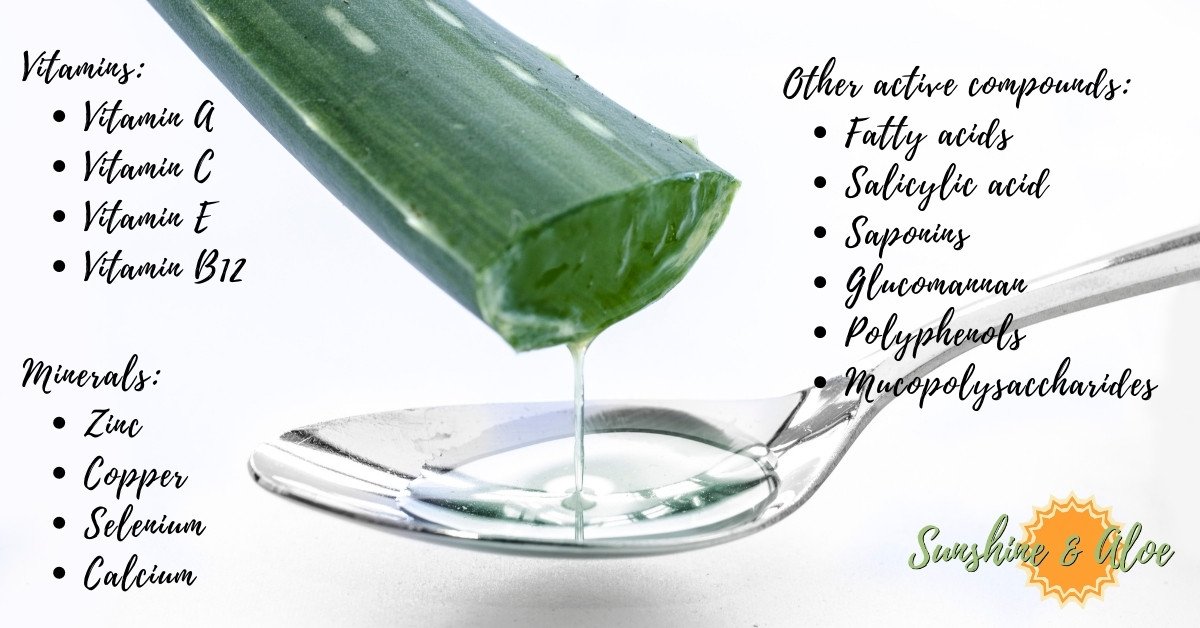Aloe Vera: A Natural Remedy for Thinning Hair?
Does aloe vera actually thicken hair?
It’s a tough question to answer. There are many of us (me included) who have gone on the quest for healthier, thicker hair. But once you go down the rabbit hole of natural hair remedies, you get hit with a barrage of options.
Rice water, argan oil, coconut oil, jojoba…all sound familiar?
With so many options to choose from, it’s hard to know what actually works. Personally, I’ve tried rice water, coffee, hair supplements, and gelatin on my quest for thicker and faster-growing hair.
While I can’t say that aloe vera is the crowning natural remedy for thinning hair, I can say that it’s worked better for me than anything else I have tried. Click here to read my post on how I use spray aloe vera for healthier hair.
Will my method work for you? Maybe, and maybe not. Due to the lack of case studies, it’s never actually been proven that aloe vera is an effective treatment for thinning hair.
But…aloe vera does contain a lot of amazing compounds that, individually, are super beneficial for your scalp. While this doesn’t guarantee thicker hair, maintaining a healthy scalp is one of the best ways to promote hair growth and prevent hair thinning.
How Aloe Vera Promotes Scalp Health
Aloe vera gel is about 99% water, meaning there isn’t much dry matter in the gel. But the remaining 1% is very nutrient-rich.
There are at least four ways that aloe vera can promote scalp health.
Moisturize your scalp. Aloe vera contains glucomannan, a type of fiber. Glucomannan is actually what makes aloe vera a succulent, because it helps the plant retain water. Applied topically, glucomannan can help lock in moisture instead of letting it evaporate. This property also makes aloe vera a great ingredient in hydrating facial serums.
Soothe inflammation. For those with seborrheic dermatitis or other skin conditions, aloe vera can help ease inflamed skin and reduce irritating symptoms. The same properties that make it a wonderful remedy for burns can also help inflammatory scalp issues.
Increase circulation. Did you know that good circulation is vital for a healthy scalp and optimal hair growth? As an article in the International Journal of Molecular Sciences explains, “Dermal microcirculation is essential for hair maintenance, and an insufficient blood supply can lead to hair follicles (HF) diseases.” Fortunately, aloe vera contains flavonoids (a type of polyphenol also present in tea) and vitamins A, C, and E. Both the flavonoids and vitamins are antioxidants, which protect your cells from free radical damage and can increase blood circulation.
Cleanse your scalp. While you may not associate aloe vera with soap, aloe vera gel contains saponins, which have antimicrobial properties. Due to the saponins, aloe vera can function as a mild cleanser, preventing build-up on your scalp and promoting skin health. Click here to learn more about using aloe vera in facial cleansers.
Aloe Vera Alternatives to Thicken Your Hair
If you are looking for ways to combat thinning hair naturally, aloe vera is far from your only option! You may also be interested in hair growth oils, rice water, and caffeine.
Hair Growth Oils
Hair growth oils are a popular choice for natural haircare. Because they are highly concentrated and can easily be applied to the scalp as a serum, hair growth oils are often more effective than diluted hair products.
There are many hair oil blends on the market, such as Nutrafol’s hair growth activator or the Mizani miracle nourishing oil.
You can also create your own blend at home, using some of the oils below.
Castor oil
Jojoba oil
Coconut oil
Lavender oil
Tea tree oil
and many more!
Be sure to check out my guide to blending hair growth oils with aloe vera. Just be aware that fresh aloe vera has a very short shelf life, so you may want to blend a small amount at a time.
Rice Water
Another natural option for gaining thicker hair is using fermented rice water. Rice water contains large proteins that coat the hair, adding volume and protecting the strands from breakage.
Personally, I tried using rice water a few times then gave up. It’s messy, smelly, and it takes time to ferment the rice beforehand. Plus, I have very fine hair. Rice water can actually be a little too protein-rich and cause unwanted buildup on fine hair strands - which means rice water probably isn’t for me.
Still, some people have achieved some amazing results with rice water, so I wouldn’t discount it immediately. If you want to try fermented rice water without all the mess, I suggest using Viori’s rice water shampoo and conditioner bars.
Coffee
If you’re a coffee addict, you can take your love for caffeine even further and incorporate it into your hair routine. When applied to the scalp, caffeine can stimulate hair growth, and can even combat certain types of alopecia.
Similar to aloe vera, caffeine can increase scalp circulation. And it can help inhibit DHT, a hormone that induces hair loss.
Can you make a aloe vera and coffee spray for your scalp? I don’t see why not!



